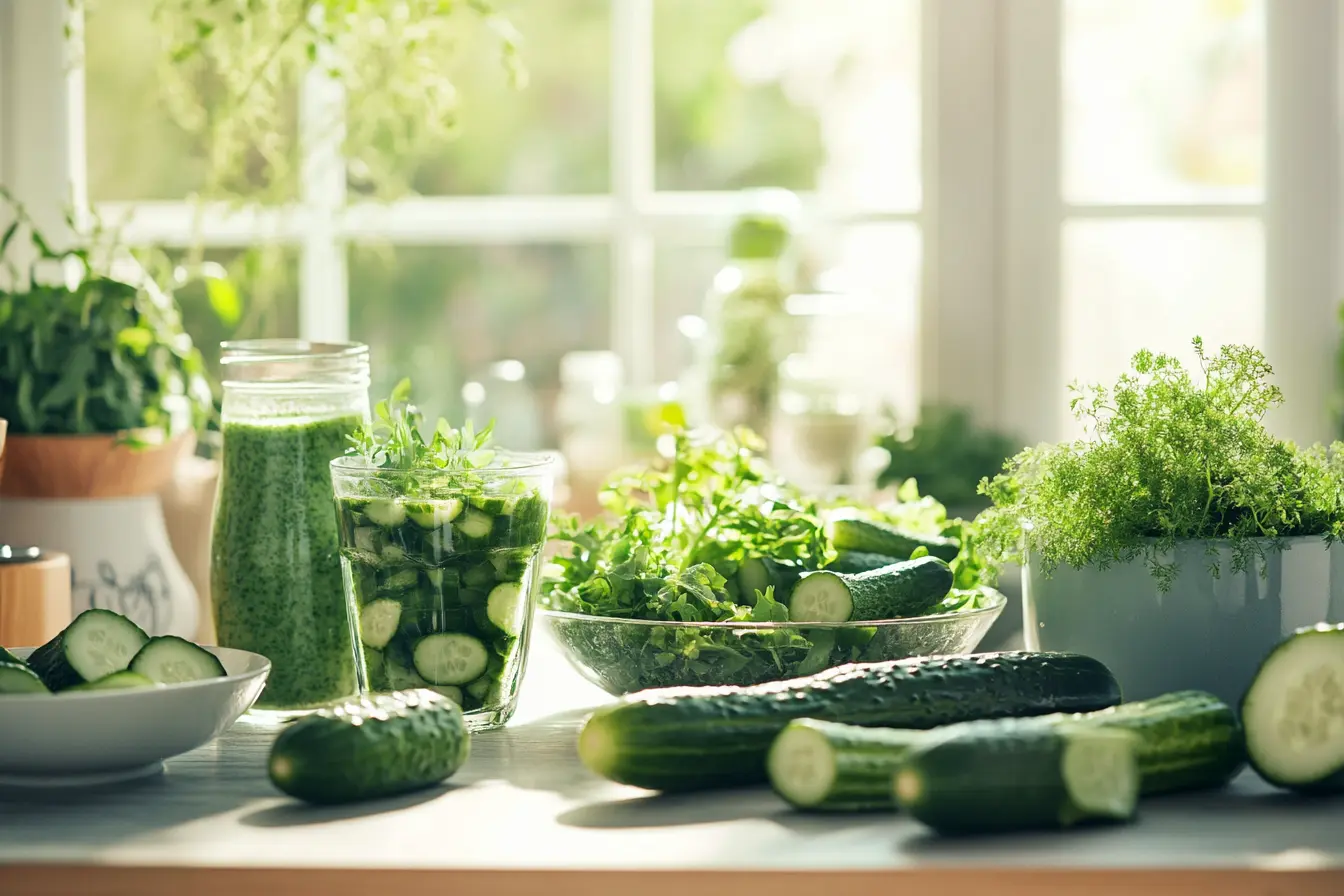Introduction: Exploring the Importance of Cucumber 🥒
In this article, we will uncover the importance of cucumber 🥒, taking a deep dive into their rich nutritional makeup, health rewards, and their culinary versatility. Cucumbers are more than just a refreshing addition to meals—they’re a powerhouse of hydration and nutrients. Let’s explore why cucumbers deserve a spot in your daily diet and lifestyle.
By the end of this article, you’ll understand how incorporating cucumbers can improve your overall health and cooking game. Additionally, we’ll cover other aspects like their varieties, sustainability, and even their beauty benefits. Let’s begin!
Nutritional Profile of Cucumbers: Understanding the Importance of Cucumber 🥒
One of the key factors that emphasize the *importance of cucumber 🥒* is its impressive nutritional profile. These low-calorie vegetables pack a punch when it comes to delivering essential vitamins and minerals.
Vitamins and Minerals
Cucumbers are an excellent source of nutrients. They’re rich in Vitamin K, essential for blood clotting and bone health. Additionally, they provide Vitamin C, boosting your immune system and promoting healthy skin. Cucumbers are also a significant source of potassium, which helps in regulating blood pressure and maintaining electrolyte balance.
Low-Calorie Content
If you’re trying to manage your weight, cucumbers are an ideal addition to your meals. With just about 15 calories per 100 grams, they are filling yet incredibly light. Including cucumbers in your diet allows you to snack guilt-free while still feeling satisfied. Transitioning into healthier eating has never been easier.
Hydration Benefits
Containing over 95% water, cucumbers are a fantastic way to stay hydrated throughout the day. Proper hydration supports skin health, promotes better digestion, and improves overall vitality. This makes cucumbers an excellent choice, particularly on hot days or after intense exercise.
Interactive Tip: Consider adding a simple table comparing the nutrient content of cucumbers with other low-calorie vegetables for a better visual experience.
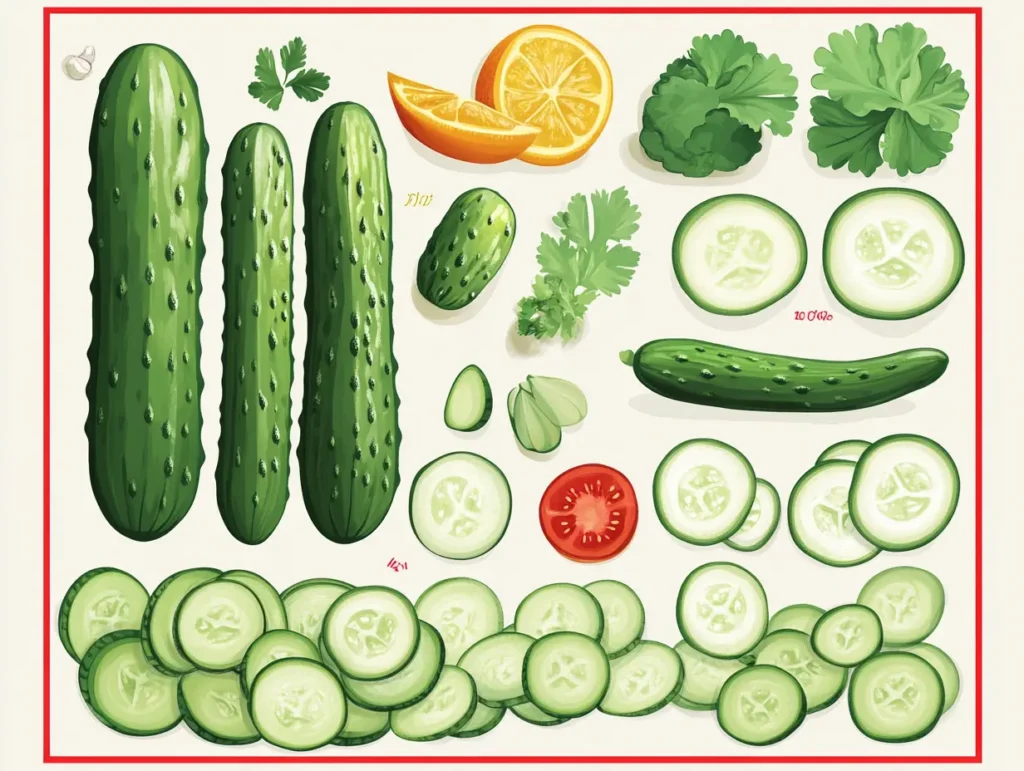
—
Health Benefits of Cucumbers: Exploring the Importance of Cucumber 🥒 in Wellness
The health benefits of cucumbers are vast, making them a crucial component of a balanced diet. Whether aiding digestion or improving skin, cucumbers truly shine as a wellness food.
Digestive Health
The fiber in cucumbers plays a pivotal role in promoting healthy digestion. Regular consumption helps prevent constipation, supports gut health, and regulates bowel movements. Given the recent interest in gut microbiomes, cucumbers align perfectly with a gut-friendly diet. For smoother digestion, pair cucumbers with other high-fiber foods like leafy greens.
Antioxidant Properties
Cucumbers are rich in antioxidants such as flavonoids and tannins, which combat harmful free radicals in the body. This helps reduce the risk of chronic diseases and protects cells from oxidative damage. Including cucumbers in your salads or smoothies is an easy way to increase daily antioxidant intake. Furthermore, their anti-inflammatory properties contribute to overall health improvement.
Heart Health
The potassium in cucumbers supports heart health by aiding in blood pressure regulation. Additionally, cucumbers contain both water and fiber, which together promote arterial health and reduce bad cholesterol. Heart wellness is another reason to embrace the *importance of cucumber 🥒* in daily meals.
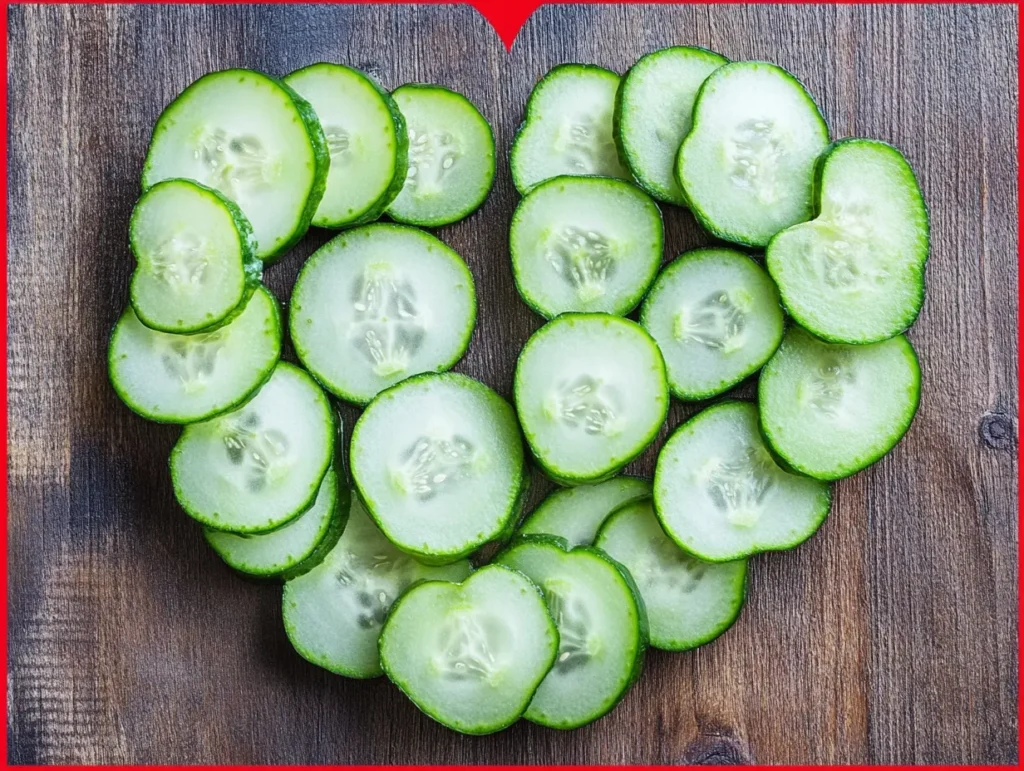
Culinary Uses of Cucumbers: Celebrating the Importance of Cucumber 🥒 in Your Kitchen
Cucumbers shine in the culinary world due to their adaptability and refreshing qualities. Whether in casual recipes or gourmet presentations, they add flavor, nutrition, and flair.
Salads and Refreshing Dishes
One of the most popular ways to enjoy cucumbers is in salads. Simple recipes like cucumber and tomato salad or tzatziki sauce showcase their natural flavor. Their crisp texture is perfect for balancing heavier ingredients, making them indispensable in refreshing dishes. Pro tip: Adding a drizzle of olive oil and lemon juice elevates their taste.
Beverages and Smoothies
Blending cucumbers into juices or smoothies not only increases hydration but also boosts nutrient content. For example, a cucumber-lime detox water or cucumber-mint smoothie makes for a refreshing treat on a hot day. Their subtle flavor enhances beverages without overpowering, ensuring a pleasant experience with every sip.
Pickling and Preservation
Cucumbers can be preserved and enjoyed as pickles, extending their shelf life and adding tangy flavor to dishes. Fermented pickles also contribute to probiotic intake, improving digestion. Quick pickling methods with vinegar and dill make it easy to prepare at home. For those aiming for long-term storage, fermenting cucumbers is a fun and rewarding approach.
Interactive Tip: Add an embedded video showing step-by-step instructions for making quick cucumber pickles at home to boost engagement.
Cucumber Varieties and Their Unique Uses
Exploring the diverse cucumber varieties showcases their importance in culinary arts and beyond. Each variety offers distinct characteristics, making them versatile in various applications. Let’s dive into the most popular varieties and their unique purposes.
Slicing Cucumbers
Slicing cucumbers, known for their long and uniform shape, are common in fresh dishes. They are perfect for salads, sandwiches, and garnishes. Their crisp texture and mild flavor make them a go-to choice for everyday meals. For added convenience, prep slicing cucumbers in advance and store them in water to keep them crunchy.
Pickling Cucumbers
These smaller, firmer cucumbers are ideal for making pickles. Their thinner skin allows them to absorb brine efficiently, offering robust flavors. From dill pickles to sweet bread-and-butter varieties, the culinary possibilities are endless. Try experimenting with spice blends to create your signature pickle recipe.
Seedless and English Cucumbers
Seedless or English cucumbers are long, slender, and almost entirely seed-free. These cucumbers are less bitter and more flavorful, making them perfect for delicate dishes like tea sandwiches or infused waters. They’re also aesthetically appealing, offering a polished look in culinary presentations.
Different cucumber varieties make it easy to experiment in the kitchen. Whether you’re slicing, pickling, or preparing a gourmet meal, cucumbers bring unmatched versatility and flavor.
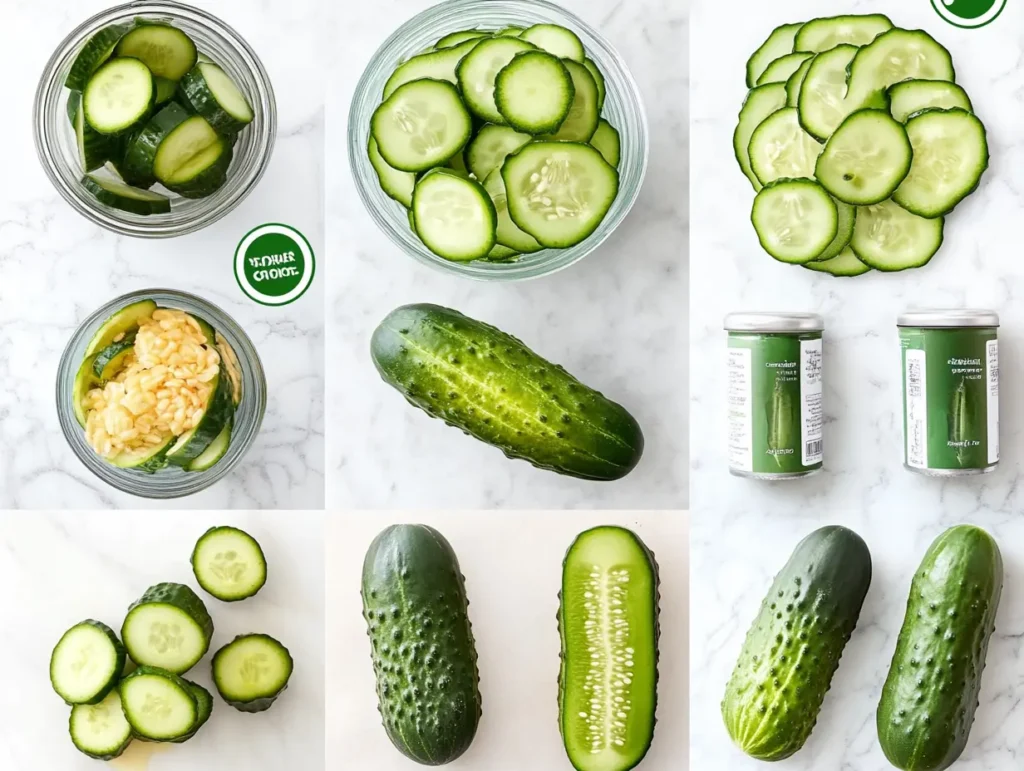
Selecting and Storing Cucumbers
Properly selecting and storing cucumbers ensures freshness and flavor retention. These simple tips will help you make the most of your cucumbers.
Choosing the Freshest Cucumbers
When shopping, opt for cucumbers that are firm, dark green, and free from blemishes. Avoid ones with soft spots or yellow patches, as these indicate overripeness. A fresh cucumber should feel heavy for its size and have a clean, smooth surface.
Proper Storage Techniques
Store cucumbers in the refrigerator to maintain their crispness. Place them in the vegetable crisper or wrap them in a paper towel before placing them in a plastic bag. This minimizes moisture build-up and prevents wilting.
Extending Shelf Life
To extend their shelf life, store cucumbers separately from fruits like apples and bananas that release ethylene gas. Alternatively, slicing cucumbers and storing them in an air-tight container submerged in water can keep them fresh for days.
By following these storage methods, you can enjoy the freshness and nutrition of cucumbers for longer periods.
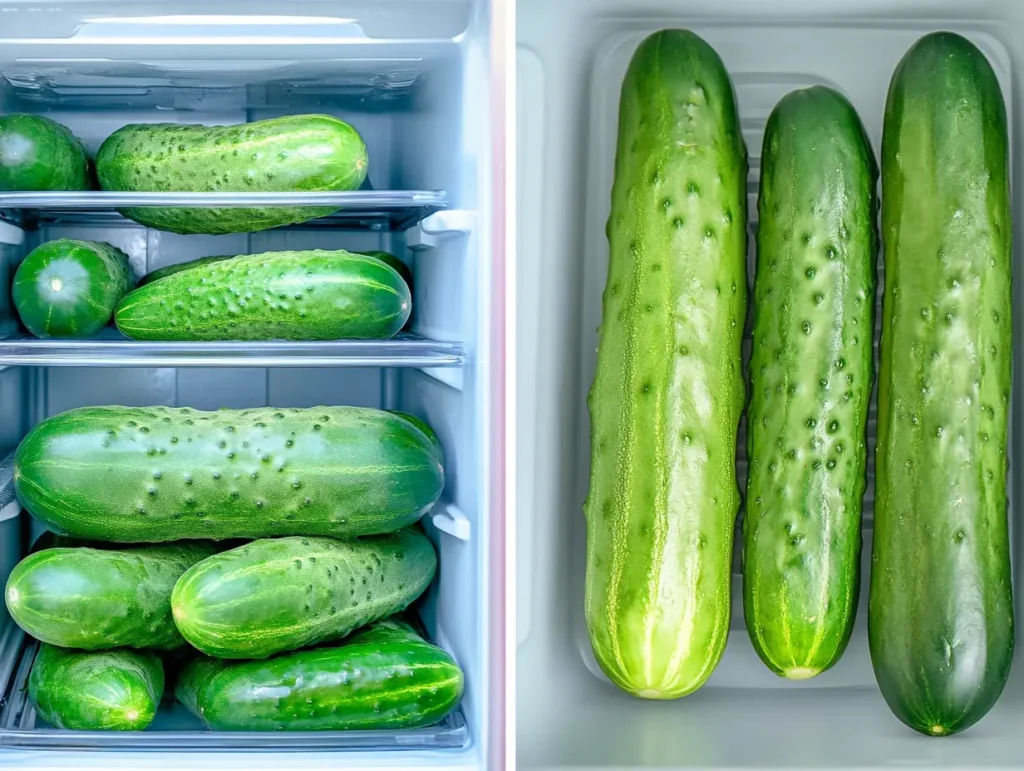
Cucumber in Skincare and Beauty
Beyond cooking, cucumbers shine as a natural ally in skincare and beauty. Their high water content, vitamins, and antioxidants make them an essential ingredient in many remedies.
Natural Skincare Ingredient
Cucumbers are excellent for hydrating and soothing the skin. Their cooling effect reduces puffiness, redness, and irritation. Simply placing chilled cucumber slices on the eyes can diminish puffiness and dark circles.
Homemade Beauty Recipes
Creating DIY cucumber beauty treatments is easy and affordable. For a refreshing face mask, blend cucumber with yogurt and honey. This natural mixture brightens and moisturizes the skin. Or, try cucumber-infused water as a facial toner for refreshing hydration.
Commercial Beauty Products
Many beauty brands incorporate cucumber extracts into their products, including moisturizers, toners, and serums. These products leverage cucumber’s anti-inflammatory and hydrating properties to enhance skin health naturally.
Including cucumber in your skincare routine can lead to glowing, healthy skin while embracing a natural and chemical-free approach.
The Role of Cucumbers in Sustainable Agriculture
Cucumbers are not just healthy; they can also play a role in promoting sustainable agriculture. Understanding their environmental benefits can encourage eco-friendly practices.
Environmental Benefits
Cucumber farming has a lower environmental footprint compared to other crops. Their fast-growing nature and minimal soil depletion make them an eco-conscious choice for agricultural rotations. Additionally, cucumbers naturally attract beneficial insects, promoting biodiversity in farms.
Water Efficiency
Cucumbers require less water than many other vegetables, thanks to their high water content. When grown using drip irrigation or rainwater collection, water usage can be further reduced. These methods make cucumber farming a sustainable option in water-scarce regions.
Organic vs. Conventional Farming
Opting for organic cucumber farming promotes soil health and reduces the use of synthetic pesticides. Organic cucumbers also support ecosystems and are safer for human consumption. For eco-conscious consumers, choosing organic is an easy way to contribute to a sustainable food system.
Incorporating cucumbers into sustainable farming practices aligns with environmental conservation and promotes global food security goals.
Common Myths and Facts About Cucumbers
Cucumbers have been the subject of numerous misconceptions over time. Exploring these myths and uncovering the truths behind them is essential for understanding *what is the importance of cucumber 🥒*. Many believe cucumbers are “just water,” offering little nutritional value. However, this couldn’t be further from the truth. Cucumbers are packed with vitamins, minerals, and antioxidants that actively support your body’s overall health.
One prevalent myth is that cucumbers can cause bloating due to their water content. In fact, cucumbers contain fiber that aids digestion and prevents bloating, making them beneficial for gut health. Additionally, contrary to the belief that eating cucumbers can lead to weight gain, their low-calorie content makes them one of the best options for healthy snacking or incorporating into a weight loss plan.
Let’s bust another common misconception: that cucumbers lack health-promoting properties. In truth, their high antioxidant levels help reduce inflammation and fight free radicals that contribute to chronic illnesses.
If you’ve been led to believe cucumbers should be peeled to gain complete nutritional value, pause before reaching for that peeler. The skin of cucumbers contains a concentrated amount of fiber and nutrients, enhancing their overall health advantages. However, it’s crucial to ensure they’re thoroughly washed or organic to avoid pesticide residues.
By distinguishing between myths and evidence-based facts, you’ll not only better appreciate the role of cucumbers in nutrition but also feel encouraged to integrate them into your life more frequently.
Recipes Highlighting the Importance of Cucumbers
Cucumbers are incredibly versatile in the kitchen, showcasing their nutritional and culinary significance. Let’s dive into three exciting recipes that highlight *what is the importance of cucumber 🥒* in everyday meals. Whether you’re a seasoned chef or a beginner, these recipes are simple, healthy, and delicious. They underscore cucumbers’ role as more than just an ingredient—they’re a key to unlocking tasteful nutrition.
1. Classic Cucumber Salad
- Thinly slice cucumbers, red onions, and cherry tomatoes.
- Create a dressing using olive oil, lemon juice, salt, and black pepper.
- Mix the vegetables with the dressing and serve chilled for a refreshing bite.
2. Cucumber and Avocado Smoothie
- Blend together one cucumber (peeled), a ripe avocado, a handful of spinach, and a splash of almond milk.
- Add a pinch of salt and lemon juice for a zesty touch.
- This drink offers hydration, fiber, and healthy fats.
3. Homemade Pickles
- Slice cucumbers into spears or rounds.
- Create a brine using water, vinegar, salt, sugar, and your choice of spices (e.g., dill, garlic, or mustard seeds).
- Pour the brine over the cucumbers in a jar, seal it, and refrigerate for at least 24 hours.
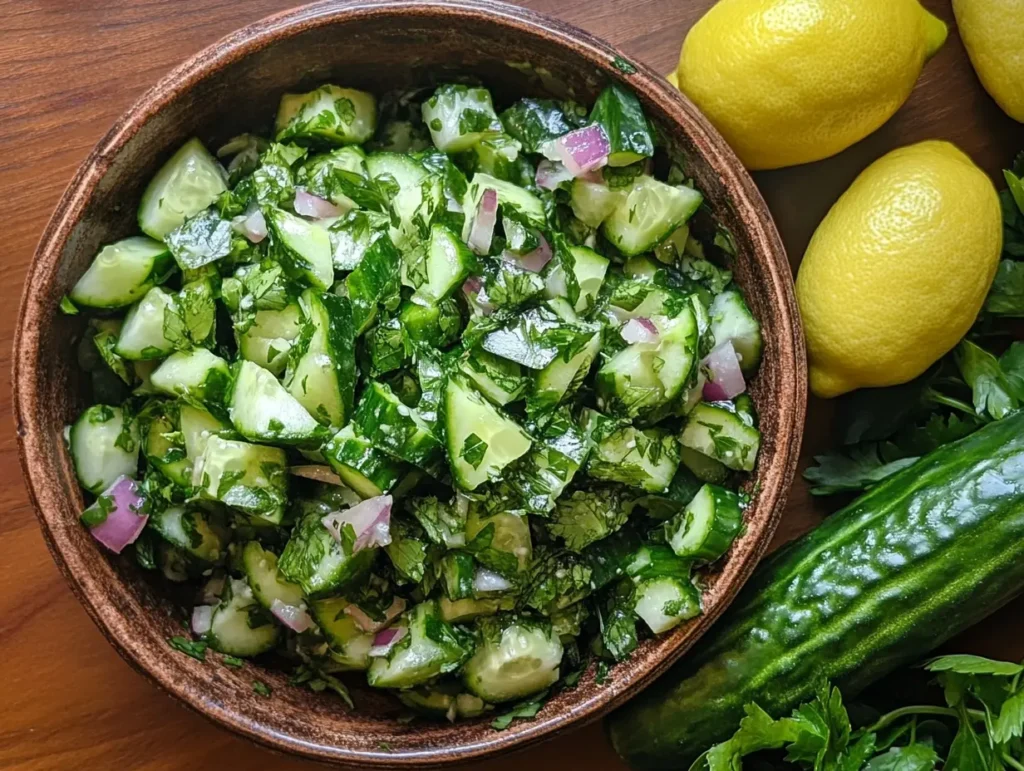
From salads to smoothies or even pickles, these recipes prove that cucumbers bring refreshing flavors and impressive health benefits to your table.
Frequently Asked Questions (FAQ)
To further clarify *what is the importance of cucumber 🥒*, we’ve compiled answers to some frequently asked questions. These insights provide quick, practical information about cucumbers, their uses, and their nutritional value.
Q: What are the main health benefits of cucumbers?
A: Cucumbers offer various benefits, including hydration, improved digestion, antioxidant support, and heart health improvement. Their low-calorie profile makes them ideal for weight management.
Q: How can I incorporate more cucumbers into my diet?
A: Cucumbers can be added to salads, sandwiches, or smoothies. You can also enjoy them as a snack with hummus or yogurt-based dips.
Q: Are there any side effects of eating too many cucumbers?
A: While cucumbers are generally safe, consuming them in excess may cause digestive discomfort due to their water and fiber content. Moderation is key.
Q: How do cucumbers compare to other vegetables in terms of nutrition?
A: Cucumbers offer hydration, low calories, and specific vitamins like Vitamin K. While they might not provide as much protein as other vegetables, they excel in keeping you hydrated and refreshed.
Conclusion
Now that you understand *what is the importance of cucumber 🥒*, it’s clear cucumbers are much more than a watery vegetable. From their rich nutritional profile and health benefits to their culinary versatility and skin-care applications, cucumbers truly earn their place in a balanced lifestyle.
Take advantage of their refreshing simplicity by incorporating the recipes provided, or try out your own creative spins. Whether you’re mastering a crisp cucumber salad or enjoying a hydrating smoothie, cucumbers are a delightful way to improve your health and diet effectively.
So, what’s next? Head to your kitchen and try one of these cucumber-centric recipes. Don’t forget to share your experience and favorite uses of cucumbers in the comments or on social media!
Related topics:
- Dive deeper: Discover the key ingredients in a refreshing Japanese cucumber salad that highlights this versatile vegetable.
- Try this next: Explore how to make the perfect cucumber dressing for your next healthy salad.
- Craving more recipes? Learn how to recreate the iconic Din Tai Fung cucumber dish at home.
- Expand your skills: Uncover the different types of vinegar used in cucumber dishes for that perfect balance of flavor.

